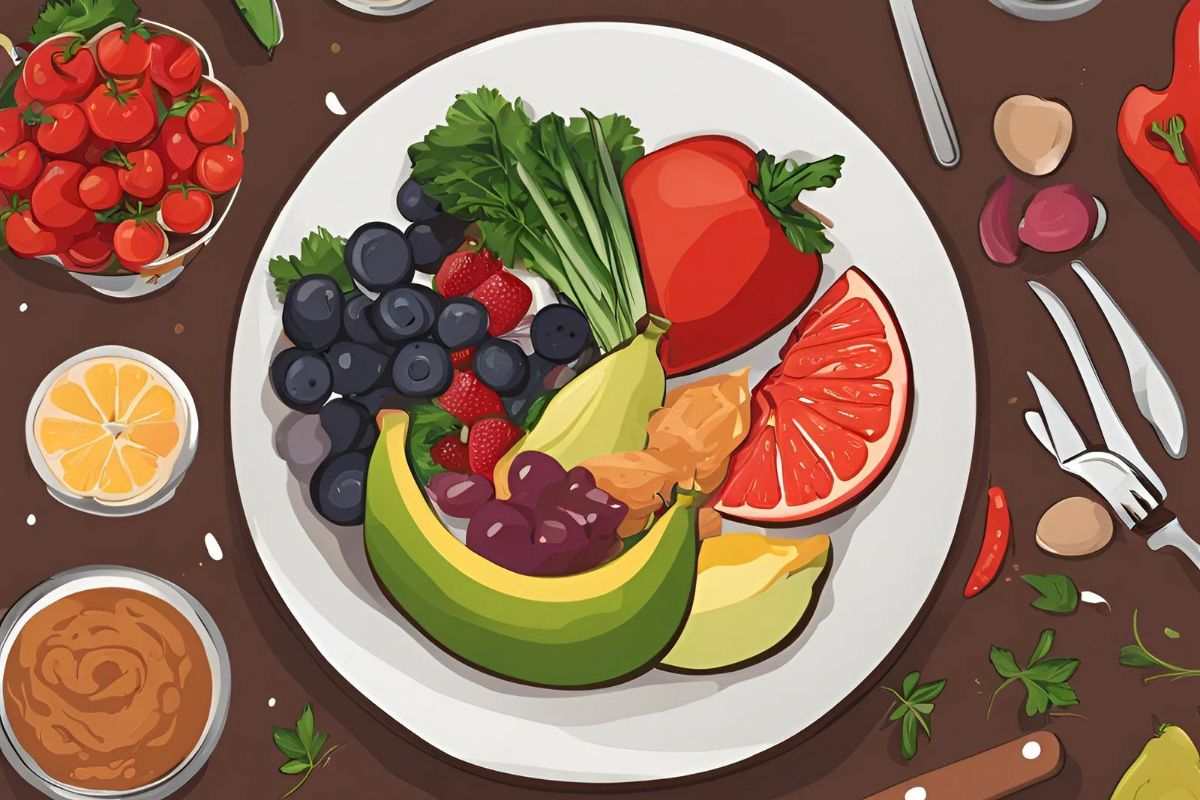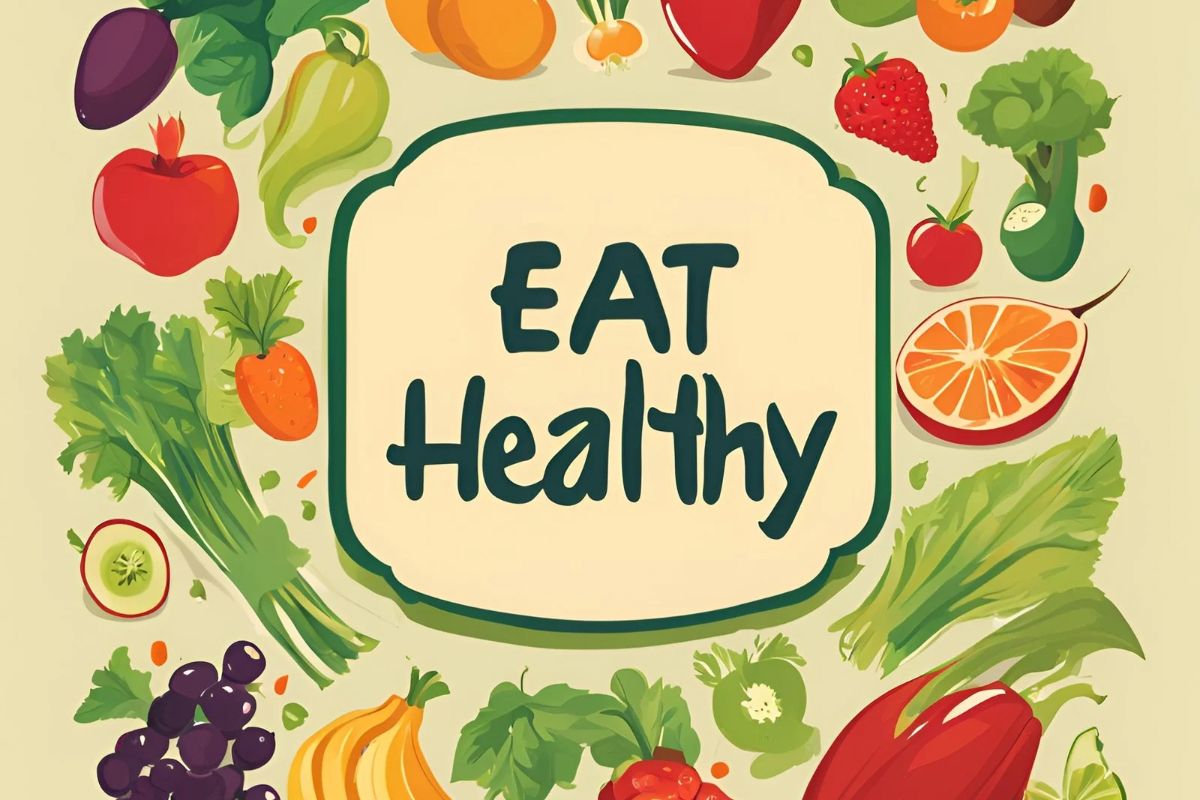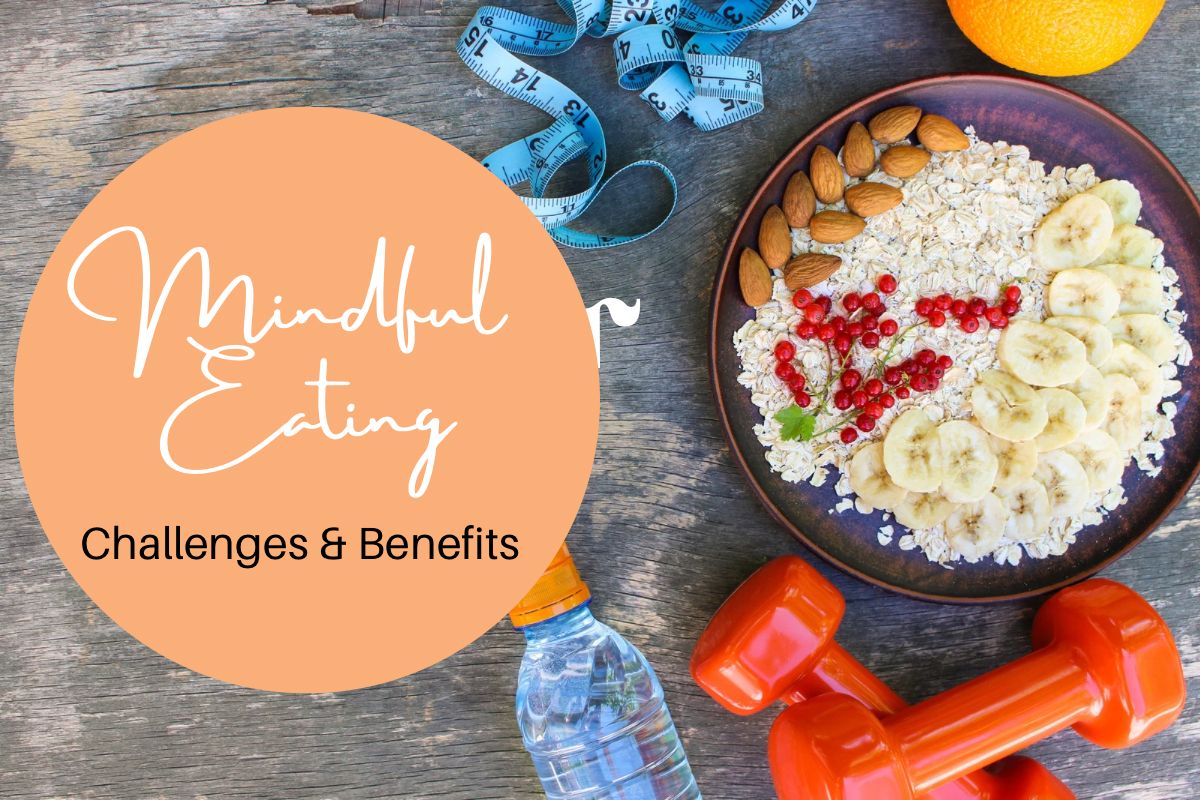Discover the common healthy eating mistakes that you may have adapted thinking they are healthy eating habits, but are not suitable for a healthy balanced life.
Common healthy eating mistakes is more than just a trend—it’s a crucial part of leading a balanced and fulfilling life. However, many people unknowingly fall into common pitfalls that can derail their efforts. Can healthy eating habits help you achieve your ideal weight?
Yes, healthy eating habits can help achieve your ideal weight. Eating the right food with a good level of physical activity daily can transform you and help you reach your ideal BMI.
In this blog, we’ll explore the top 10 mistakes people make when trying to eat healthily and provide practical tips to avoid them. By recognizing and overcoming these mistakes, you can create a sustainable and enjoyable approach to nourishing your body and achieving your wellness goals.Can Overly Restrictive Diets Do Any Good?
No, overly restrictive diet can not do any good. These diets promise quick weight loss but can harm both physical and mental health. Extreme calorie cuts or eliminating entire food groups can cause nutrient deficiencies, low energy, and a sluggish metabolism.
Strict diets are not recommended as they often lead to an unhealthy relationship with food, creating feelings of guilt and deprivation, which can trigger binge-eating cycles, ultimately derailing long-term health goals.
Instead of restrictive diets, embrace a balanced approach. A well-rounded diet includes a variety of whole foods—fruits, vegetables, lean proteins, whole grains, and healthy fats. These provide essential nutrients, fiber, and antioxidants for optimal health. Remember, healthy eating is about nourishing your body and enjoying food, not obsessing over strict rules.
How Portion Control Works?
Portion control is key to maintaining a healthy diet. Ignoring portion sizes can hinder weight management and lead to overeating. Over the years, portion sizes have increased, contributing to obesity. Consuming large portions, even of healthy foods, can result in excess calorie intake.
Managing portion sizes doesn’t mean strict measuring. Instead, develop awareness and make mindful choices. Familiarize yourself with recommended serving sizes for different foods. Pay attention to hunger and fullness cues, aiming to eat until satisfied, not stuffed. Using smaller plates and bowls can also help.
Practicing mindful eating—eating slowly and savoring each bite—can prevent overeating. These strategies can help you manage portions and support weight management.
Is Skipping Meals A Good Strategy?
No, skipping meals is not a good strategy. If you’re skipping meals, especially breakfast or lunch, you’re making the worst mistake. It might seem like a good way to cut calories, but it can negatively impact metabolism and overall well-being. Skipping meals leads to lower energy levels, unstable blood sugar levels, increased hunger, cravings, and a higher likelihood of overeating later.
Regular meal consumption provides steady energy and nutrients. Breakfast is crucial as it kick starts metabolism and provides essential nutrients after the overnight fast. Eating regular meals stabilizes blood sugar, maintains energy levels, and supports cognitive function and productivity.
The best strategy is to spread meals throughout the day to prevent excessive hunger and overeating. A healthy eating pattern involves balanced, portion-controlled meals at regular intervals, not skipping them.
Are Relying on Processed “Healthy” Foods?
Many people rely too heavily on processed “healthy” foods. These are often marketed as low-fat, low-sugar, or fortified with vitamins, but they can be deceiving. Processed foods are loaded with additives, preservatives, artificial flavors, and excessive salt and sugar, lacking the nutritional value of whole foods. Relying on them can lead to inadequate nutrient intake, imbalanced macronutrient ratios, and increased risk of chronic diseases.
Prioritize whole, unprocessed foods like fruits, vegetables, whole grains, lean proteins, and nuts. These are rich in essential nutrients, fiber, and antioxidants, providing a wide array of vitamins and minerals. Opt for homemade meals with fresh ingredients instead of packaged snacks. This way, you maximize nutrient intake, minimize harmful additives, and promote a healthier eating pattern.
Are You Drinking Enough Water?
Staying hydrated is crucial for health, but many people don’t drink enough water. Dehydration can reduce cognitive function, energy levels, digestion, and physical performance. Water regulates body temperature, transports nutrients, lubricates joints, and eliminates waste. Without adequate water, these functions suffer.
To stay hydrated, make carrying a reusable water bottle a habit. Use reminders or apps to prompt regular drinking, especially if you forget. Include hydrating foods like fruits and vegetables in your diet. Flavor water with slices of citrus fruits, cucumber, or herbs to make it more enjoyable. Drink water before, during, and after physical activity, and listen to thirst cues. Conscious hydration efforts support overall health.
Are You Focusing Solely on Calories?
Overemphasizing calorie counting is a common mistake. While it helps with weight management, it overlooks nutritional value. Not all calories are equal—100 calories of sugary snacks differ from 100 calories of nutrient-rich fruits or vegetables. Focusing only on calories can neglect nutrient density, food quality, and macronutrient balance.
Prioritize nutrient-dense foods—those high in essential nutrients relative to calorie content. These are typically whole, unprocessed foods rich in vitamins, minerals, fiber, and antioxidants. Incorporate a variety of colorful fruits, vegetables, lean proteins, whole grains, and healthy fats. Nutrient-dense foods support overall health and provide greater satisfaction. Shift your focus from calories to nourishing your body with quality foods.
How Ignoring Dietary Preferences and Restrictions Impacts?
Healthy eating must consider individual preferences and restrictions. Ignoring these can lead to deprivation, dissatisfaction, and difficulty sticking to a plan. Each person has unique tastes, cultural influences, and dietary needs. There is no one-size-fits-all approach.
Accommodate preferences and restrictions within a healthy eating plan. Explore a range of healthy foods that align with your tastes. Experiment with cooking methods, flavors, and spices to enjoy meals more. If you have dietary restrictions or allergies, learn about suitable alternatives. Personalizing your plan fosters a positive relationship with food and ensures sustainability.
Not Planning and Preparing Meals
Not planning and preparing meals can hinder healthy eating efforts. Without a plan, it’s easy to opt for convenience foods or make impulsive choices. Meal planning saves time, reduces stress, and promotes healthier choices. Planning ensures nutritious options are available, avoiding unhealthy fast food or processed meals. Preparing meals in advance gives control over ingredients, portion sizes, and cooking methods.
Incorporate time-saving strategies into your routine. Set aside a specific time each week to plan meals, create a shopping list, and prepare ingredients. Consider batch cooking or preparing larger quantities to store for future use. Use kitchen tools like a slow cooker or Instant Pot for easier cooking. Make-ahead breakfasts and snacks, like overnight oats or pre-cut veggies, offer healthy options on hand. Prioritize meal planning and preparation to stay on track with healthy eating goals.
Do You Give Up Too Soon?
Healthy eating requires commitment and perseverance. A common mistake is giving up too soon. Significant changes can be challenging, and setbacks are natural. Healthy eating is a long-term commitment, not a quick fix. Many expect immediate results and get discouraged when changes are slow, leading to premature abandonment of efforts.
Develop strategies to overcome setbacks and stay motivated. Set realistic, achievable goals, breaking them into smaller milestones. Recognize progress may be gradual, and slip-ups are normal. View setbacks as opportunities to learn and grow. Surround yourself with a support system for encouragement and accountability. Enjoy the process by trying new recipes and flavors, celebrating positive changes like increased energy. Maintaining a healthy eating pattern is a lifelong journey; perseverance is key to long-term success.
Neglecting Overall Lifestyle Factors
Nutrition is just one part of health. Neglecting other lifestyle factors undermines overall well-being. Sleep, stress management, physical activity, and self-care are interconnected with health. Lack of sleep disrupts hunger hormones, leading to poor food choices and overeating. Chronic stress triggers emotional eating or appetite loss. Insufficient physical activity hinders weight management and health. Neglecting self-care affects mental health, impacting your relationship with food.
Adopt a holistic approach to health. Prioritize quality sleep with a consistent routine. Practice stress management techniques like meditation or hobbies. Incorporate regular physical activity—cardio, strength training, flexibility exercises. Prioritize self-care for mental and emotional well-being. Addressing these factors alongside dietary choices creates a foundation for overall health and well-being. A comprehensive lifestyle approach enhances the benefits of healthy eating and promotes a balanced, fulfilling life.
Final Verdict
Transform your eating habits by sidestepping these common pitfalls. Embrace a balanced, sustainable approach to nourish your body, support your well-being, and achieve long-term health goals. Remember, healthy eating is a journey, not a destination.
















